Republicans this week made major progress when they passed the “big, beautiful” budget reconciliation package out of the House, but there’s still a long road ahead to President Donald Trump’s desk.
The package—dubbed the One Big, Beautiful Bill Act—now heads to the Senate. The GOP currently has a 53-47 majority in the upper chamber, and several prominent members of the GOP conference have already voiced concerns about the House-passed version of the bill.
If passed, the bill would fulfill a number of President Donald Trump’s campaign promises, such as extending his first-term 2017 tax cuts and funding border security.
As the bill moves to the Senate, here’s which GOP senators are worth keeping an eye on:
Senate Majority Leader John Thune
Sen. John Thune is Senate Republicans’ successor to Sen. Mitch McConnell, R-Ky., as conference leader.
Since taking the post, Thune, R-S.D., has proven himself remarkably capable of settling disagreements in his conference, quickly confirming every one of Trump’s Cabinet-level appointees.
Thune has supported House leadership’s reconciliation efforts and has indicated he wants to get the bill passed through the Senate by Independence Day, July 4.
Of House Speaker Mike Johnson’s concessions to blue state Republicans on increasing the cap on state and local tax (SALT) deductions, Thune has told the press, “It’s not an issue that gains or loses votes here in the Senate. This is purely a House play designed to deal with the political challenge they have to get 218.” That number represents a majority in the 435-seat House.
Thune told reporters that he’s hoping to keep the basic structure of the House’s bill intact.
“When it comes over here, I think [Speaker Johnson] would like to see as little change to the product as possible, because they cobbled together a very delicate balance over there,” he said.
Sen. Mike Crapo
Sen. Mike Crapo, R-Idaho, has expressed hope about the compatibility of the Senate version of the budget reconciliation bill with the House’s.
The Idaho senator, who chairs the powerful Senate Finance Committee, has publicly expressed that he thinks the bill “will probably be the most significant thing that we do in our service in Congress.”
Crapo wields a significant amount of power from his post in the Finance Committee, as he will navigate discussions over tax policy and Medicaid financing.
State and local tax deductions, as well as Medicaid reforms, were the two most contentious issues in the House, and as such, Crapo will have his hands full.
“We’ve been working very closely together to get our work product as close together as we can,” Crapo has said. “I think you’ll see a significant amount of overlap, but there will be differences.”
Sen. Josh Hawley
Sen. Josh Hawley, R-Mo., cautioned against aggressively seeking savings in Medicaid in an op-ed for The New York Times.
He noted that more than 70 million Americans, including 1 million of his constituents in Missouri are on Medicaid. Hawley said Republicans should “ignore calls to cut Medicaid.”
The Missouri senator has also proposed expanding the child tax credit to $5,000, up from the $2,000 figure that was in the 2017 Tax Cuts and Jobs Act.
The tentative number for the new child tax from the House Ways and Means Committee was $2,500 per child, which would eventually revert to $2,000 after 2028.
Sen. Ron Johnson, Other Fiscal Hawks
In the Senate, Sen. Ron Johnson, R-Wis., is perhaps the closest equivalent to the conservative House Freedom Caucus members that Trump and House leadership were able to bring into line on Thursday.
Johnson wrote a Wall Street Journal op-ed in May, “The Ugly Truth About the ‘Big Beautiful Bill,’” in which he called the bill’s $1.5 trillion in spending cuts over 10 years “little more than a rounding error.”
It likely will be harder to pressure Johnson than it was to pressure Freedom Caucus members.
“I couldn’t care less if he’s upset,” Johnson said of potential pressure from Trump.
“I’m concerned about my children, my grandchildren, and the fact that we are stealing from them … $37 trillion in debt and we’re going to add to it as Republicans? That is unacceptable, and that’s why there’s no way I’m going to vote for this bill in its current form.”
Johnson has a couple of ideological soulmates in the Senate. Sen. Rand Paul, R-Ky., has opposed GOP efforts on similar grounds, rejecting the Senate budget resolution that formed the basis for the current bill.
Sen. Mike Lee, R-Utah, is less of a rebel than Johnson or Paul, but has previously expressed sympathies for Freedom Caucus members’ efforts to implement more aggressive Medicaid reforms in the House.
These three are the most fiscally conservative members of the Senate, but there are a handful of other senators who might also push for more aggressive cuts.
Sen. Susan Collins, Other Centrist Republicans
Collins, a moderate Republican from Maine, was one of two senators in her party to vote against the Senate’s budget plan in April—which laid the groundwork for the bill coming to the Senate.
Collins joined Hawley and Sen. Lisa Murkowski, R-Alaska, as the only Republicans to vote in April for an amendment that would have struck instructions for the House Energy and Commerce Committee to make massive spending cuts.
Energy and Commerce handles Medicaid spending and has found hundreds of billions of dollars in projected savings by increasing “community engagement” requirements for Medicaid and requiring regular eligibility checks for the program.
Given that the House leadership has appeased fiscal hawks in the House by including earlier implementation of Medicaid work requirements, Collins could take issue with the compromise provisions that made the bill’s passage in the House possible.
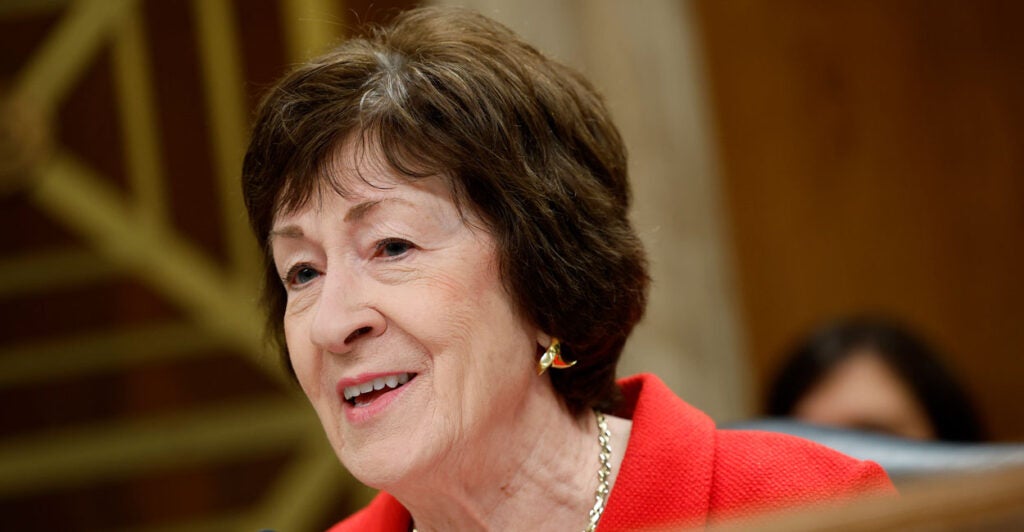 Sen. Susan Collins, R-Maine (Kevin Dietsch/Getty Images)
Sen. Susan Collins, R-Maine (Kevin Dietsch/Getty Images)Murkowski is another senator to watch closely. The Alaska lawmaker voted against confirming Secretary of Defense Pete Hegseth, showing her willingness to directly defy Trump’s wishes.
She has also expressed opposition to the GOP’s plans to find savings in Medicaid. Murkowski also has positioned herself as taking a “more cautious and conscientious approach” on ending green energy tax credits that were put into the Inflation Reduction Act signed by then-President Joe Biden.
Those green energy tax credits were just given a quicker expiration date in the House’s bill in order to appease fiscal hawks.
Less than three weeks ago, Murkowski and Collins declined to weigh in on whether they would back the bill.
Then there are those who have the least to lose in breaking party ranks. Most prominent among those is McConnell, who has been cast out of the mainstream of the party after a series of spats with Trump and who voted against a number of Trump’s Cabinet nominees. He is set to retire at the end of his current term.
The post Who to Watch in Senate as ‘Big, Beautiful Bill’ Advances appeared first on The Daily Signal.
.png)






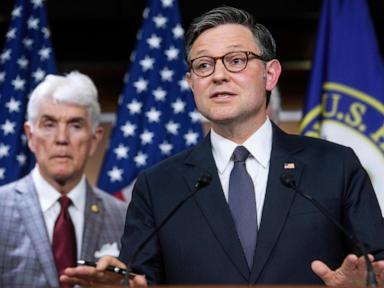


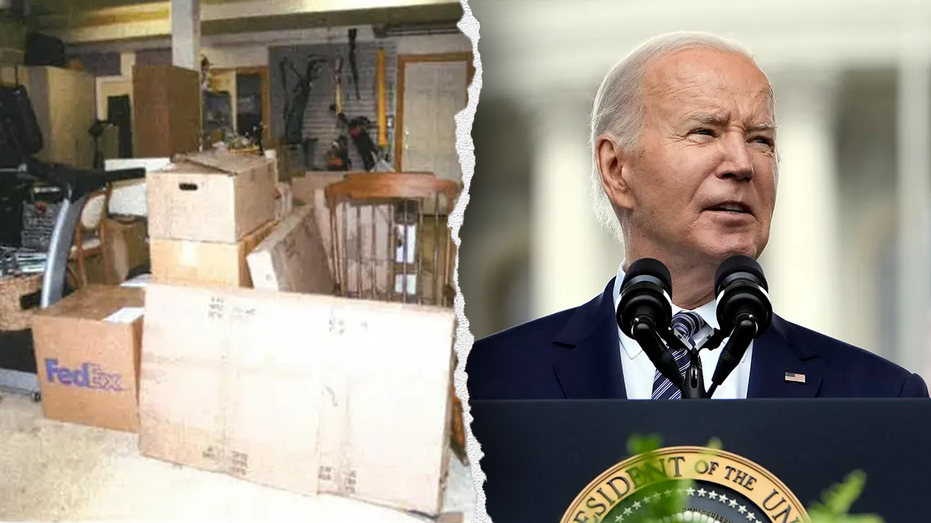
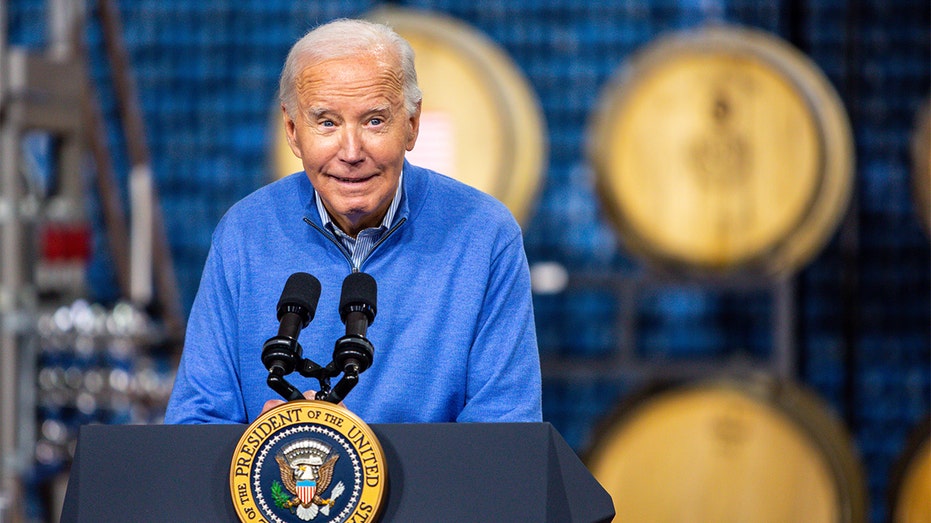



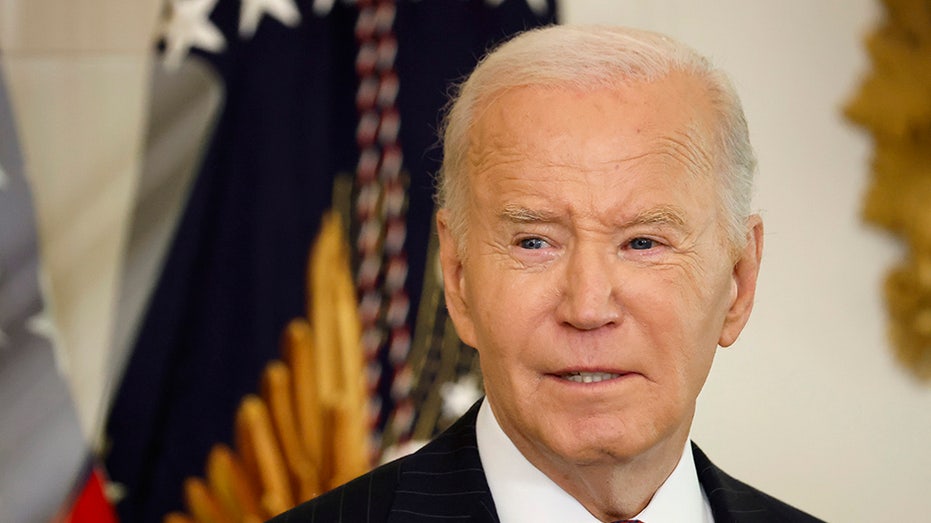
 English (US)
English (US)